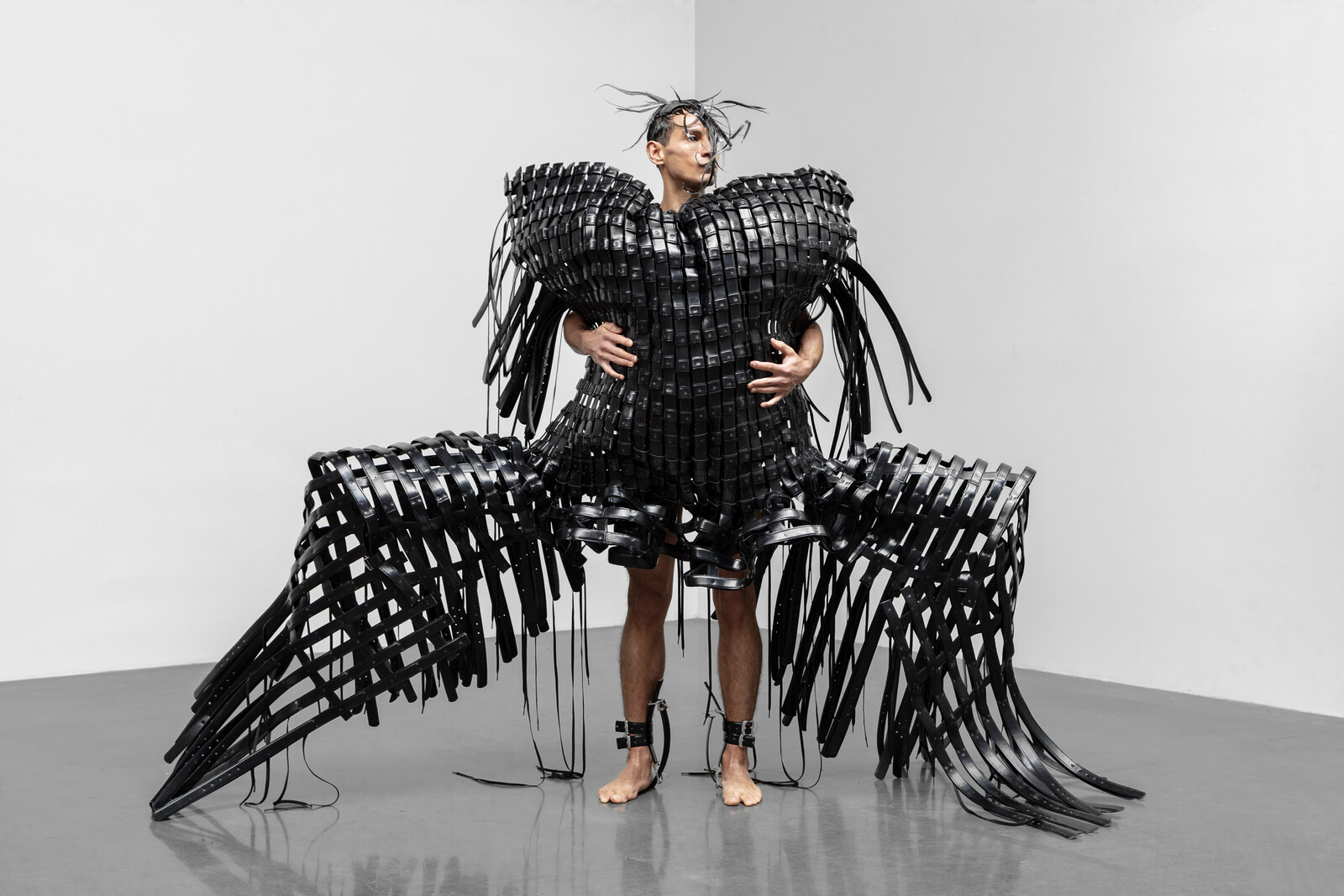New Lexicons for Embodiment
September 14–October 21, 2023
516 W 20th street
New York, NY 10011
USA
I look at Bárbara Sánchez-Kane’s works and a kind of eroticism immediately springs up between us: like me, they await a body that will use and possess them.
What happens to a body dressed in one of Sánchez-Kane’s works? In the short term, the syntax of its limbs is altered. In the long term, I suspect, its organs will end up changing both function and meaning. Where once was an arm, an ear will grow. Mutant clothes for mutants.
Mutant clothes as an act of resistance against evolutionary biology: a wardrobe for misfits in which all that is functionless and discarded finds its place. Clothes for a less efficient life. Shoes to walk slowly and difficultly toward a different beauty. Clothes for being less productive. Suits unfit for seeking work. A perfect wardrobe for making life more complicated.
But clothes, too, for tying the body to the body and saving it from virtual reality and its avatars. Clothes as uncomfortable as reality itself.
No. I take it back. I said that Sánchez-Kane’s works await a body that will use and possess them but that was a misjudgment: they await, rather, a body which they themselves may use and possess. And yet this isn’t entirely exact, either.
The thing is that these clothes are unstable; they are in a constant state of transformation. As soon as one speaks of them, they’re already turning into something else. Yes, mutant clothes. No.
Clothes in a state of flux. More than with fabrics, metals, rawhide, belts, Sánchez-Kane works with fluxes. Instead of calling them clothes, we might call these works desire.
The one who wears Sánchez-Kane’s work disappears. It’s impossible to take a selfie in one of Sánchez-Kane’s works because the one who appears in the picture is someone else. It’s impossible, too, to look in the mirror without missing oneself, without longing for the person one was and whom one has left behind. Wearing one of these garments entails an exercise in unknowing oneself. Clothes that strip the body of its image.
I read the name “Narciso” (Narcissus) tattooed on the abdomen of the faceless model wearing Sánchez-Kane’s work and it terrifies me, since to wear one of Sánchez-Kane’s works means, precisely, to wear Narcissus’ death: it is to drown within oneself only to come back to life as a vampire on the other side of the image: in the mirror that no longer holds your reflection. The name remains, which is to say, the text, which is to say, the fabric, which is to say, the weave.
A bit further up, almost at the height of the chest, in big letters, is another tattoo that reads “Valiente” (Brave).
Not one belt but ten, twenty, a hundred: the metastasis of the one multiplied into the void. In the monstrous proliferation of belts interwoven around an already absent single body, there stirs the collective monster of the orgy. —Luis Felipe Fabre







